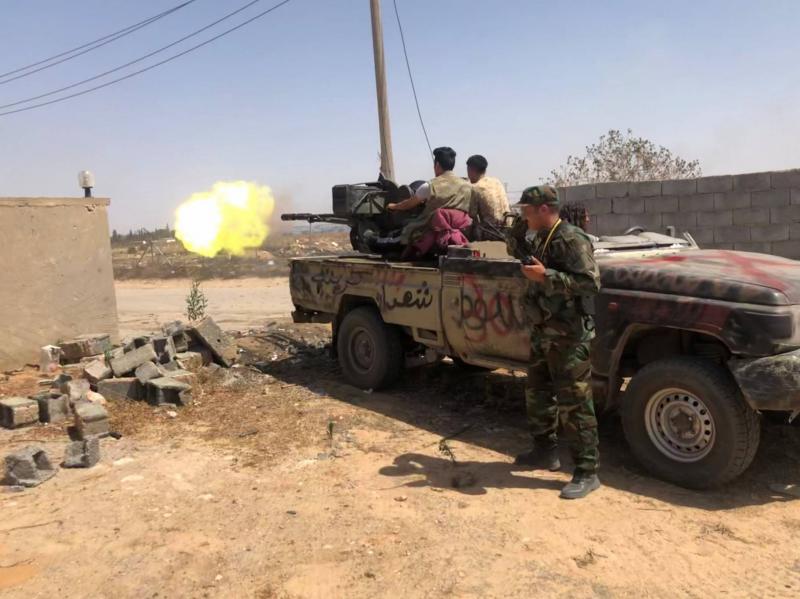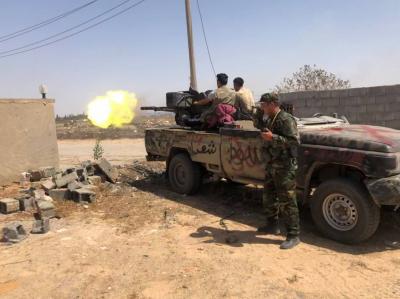Despite the extension of the ceasefire, clashes intensified on Saturday evening between the Sudanese army and the Rapid Support Forces, with black smoke rising in several areas in the capital, Khartoum, and in Omdurman, as well as at Halfaya Bridge and Sayyidna Airport. This situation prompted embassies, notably the U.S. State Department and Egypt, to urgently advise their nationals to stay away from Sayyidna Airport for security reasons. Meanwhile, the Sudanese army urged residents of Khartoum to stay indoors and avoid approaching windows as a comprehensive military operation against the Rapid Support Forces began. The Khartoum state announced an indefinite holiday starting tomorrow.
Airstrikes and artillery bombardments shook Khartoum on Saturday as the fighting between the two rival military factions continued, despite the ceasefire, forcing more civilians to flee and raising renewed warnings about the potential for broader instability if the war does not stop. As thick black smoke hovered over Khartoum, a UN envoy offered a glimmer of hope, stating that the Sudanese army and the Rapid Support Forces were now more open to negotiations, although no date had been set for talks. Both sides, however, showed no signs of stepping back from their positions.
Despite morning bombardment, residents in Khartoum and neighboring towns reported that the intensity of the fighting had decreased on Saturday compared to the previous few days. The ongoing conflict has pushed Sudan to the brink of civil war, hampering an internationally supported plan to transition towards democratic elections and potentially destabilizing an already troubled region. Both sides have continued their battle despite agreeing multiple times to ceasefire arrangements mediated by foreign powers, particularly the U.S. The latest truce is set to expire at midnight Sunday after lasting 72 hours.
General Abdel Fattah al-Burhan, the army commander, stated that he would never sit with the leader of the "rebels" in the Rapid Support Forces, referring to General Mohamed Hamdan Dagalo, known as Hemedti. There was no immediate comment from the army, which has previously blamed the Rapid Support Forces for violations and stated today that its forces are continuing to fight to end the "rebellion." As of now, the prospects for negotiations between the leaders of the two sides appear slim.
Hemedti indicated that he would only begin negotiations after the army ceased hostilities. The Rapid Support Forces accused the army on Saturday of violating the ceasefire in areas under their control and warned the army against deploying reserve forces into the battle.
UN Special Envoy to Sudan Volker Perthes remarked, "The words 'negotiations' or 'talks' were not present in their statements during the first week or so." He noted that both parties had nominated representatives for proposed talks to be held either in Jeddah, Saudi Arabia, or in Juba, South Sudan, but questioned whether they could actually go there to meet in person. He added that there is an urgent need to develop a mechanism to monitor the ceasefire. “Both sides believed they could win the conflict, but positions are changing,” he stated.
The Sudanese Ministry of Health reported to Al Jazeera that at least 528 people have been killed and 4,599 others injured, a figure slightly higher than that reported by the UN, which believes the real death toll is much higher. The UN stated that the number of displaced persons due to the fighting exceeds 75,000.
Former Sudanese Prime Minister Abdullah Hamdouk, in a conference held in Nairobi, warned that the war must stop, highlighting its implications not only for Sudan but also for the region. He stated, "This is a large and deeply intertwined country... I believe this (war) will be a nightmare for the world." He added, "This is not a war between an army and a small rebellion. They are almost like two well-trained and well-armed armies."
The World Food Programme announced on Saturday that the humanitarian situation in Sudan has become catastrophic.
The WFP spokesperson, Abir Atifa, expressed serious concerns over the humanitarian situation in Sudan, indicating that there is no accurate statistic on the number of refugees or displaced persons fleeing the conflict in the country. She emphasized that the fighting must cease in Sudan to prevent the situation from worsening.
### Evacuations
Tens of thousands have fled to neighboring countries, and foreign governments have conducted a large-scale evacuation of their nationals. Saudi news reported that a passenger ship carrying 1,982 people from 17 countries would arrive at the port of Jeddah on Saturday, with 5,000 individuals already having arrived.
The British Foreign Office announced that the UK has airlifted 1,888 people to safety, with the focus shifting to supporting those remaining in Sudan. It noted that evacuation operations would conclude on Saturday as demand for seats on evacuation flights decreased.
The U.S. State Department stated that a convoy organized by the U.S. government arrived in the coastal city of Port Sudan on Saturday to evacuate American citizens, local employees, and others away from danger in the conflict-stricken country. They explained that the convoys were accompanied by safety measures for their citizens.
On Saturday, the UAE evacuated its nationals and other foreign nationals, along with humanitarian cases from Sudan by air, amidst a flow of people fleeing the conflict that erupted two weeks ago. A plane carrying about 128 individuals, including British and Americans, landed in the capital, Abu Dhabi, where they were greeted by officials.
The Ministry of Foreign Affairs and International Cooperation stated that the UAE would host these individuals until arrangements could be made for their repatriation. The Iraqi ambassador to the UAE welcomed seven Iraqi nationals residing in Sudan who were evacuated due to the ongoing events there. Additionally, an Iranian plane transported some of its nationals from Jeddah after they were evacuated via a Saudi ship from Sudan.




